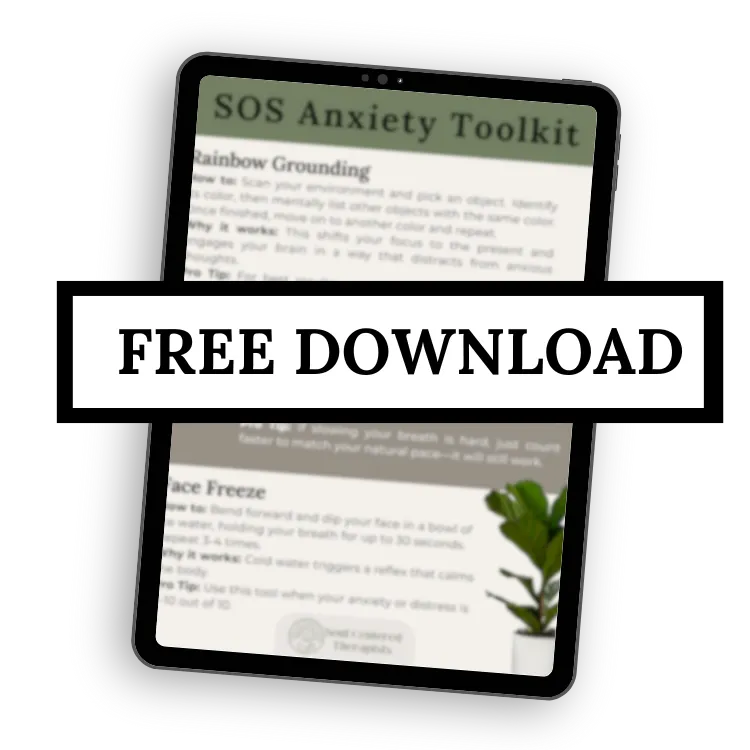
How to Support a Loved One Struggling with Mental Health
Watching someone you care about struggle with their mental health can be heartbreaking—and often, it’s hard to know what to say or do. Whether they’re facing anxiety, depression, trauma, or emotional burnout, your support can make a world of difference. This post will help you recognize the signs, navigate the best ways to offer help, and understand the importance of professional therapy for families.
Before we jump in, I want to emphasize that it’s not your responsibility to fix someone else’s mental health issues. You can comfort someone and be there for them, or share information that might be helpful, but ultimately the person who is struggling needs to also take steps to feel better for themselves.
Recognizing the Signs
While mental health looks different for everyone, some common signs that a loved one might need help include:
Withdrawing from social activities or isolating themselves
Changes in sleep, appetite, or energy levels
Increased irritability, sadness, or mood swings
Difficulty concentrating or completing everyday tasks
Expressing hopelessness or feeling overwhelmed
If you notice any of these changes, trust your intuition. It’s okay to check in, even if you’re unsure what to say.
The Dos and Don’ts of Offering Support
It’s natural to want to “fix” things for someone you love, but the best support often comes from simply being there in a caring, nonjudgmental way.
DO:
Listen without interrupting or offering immediate solutions
Use gentle, open-ended questions (e.g., “How have you been feeling lately?”)
Respect their pace—they may not be ready to talk or seek help immediately
Offer mental health resources if they seem open to them
If you have experience with something similar, share a little bit of your story
Follow up and continue to check in
DON’T:
Minimize their experiences (e.g., “You’re overreacting,” or “Everyone feels that way sometimes”)
Pressure them to “just be positive” or “snap out of it”
Take things personally if they withdraw or seem irritable
Try to be their therapist—your role is to support, not to treat
Encourage Professional Help
No matter how strong your relationship is, your loved one may need more than you can provide. That’s where therapy comes in.
Remind them that seeking professional help is a sign of strength, not weakness. Normalize the idea that everyone needs support sometimes, and offer to help with the logistics (like finding a therapist or attending an initial session with them).
Take the First Step With Support
If you’re wondering how to support a loved one or navigate your own feelings as a supporter, we’re here to help. Our compassionate, personalized services include individual therapy, therapy retreats, and hypnotherapy in Newport Beach and online in California.
Schedule a free consultation today to learn how therapy can help your loved one—and you—feel more supported, hopeful, and connected.
Your healing is worth the investment.
Let’s create the space for you to feel like the best version of yourself.
Click here to schedule a free consultation.
Love,
-Soul Centered Therapists



